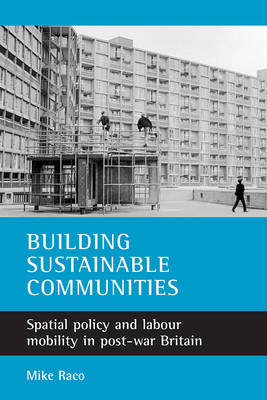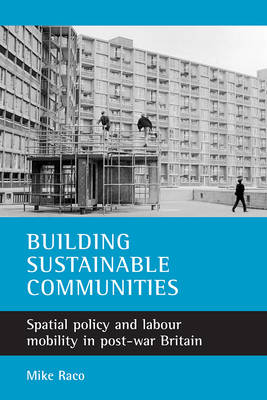
- Afhalen na 1 uur in een winkel met voorraad
- Gratis thuislevering in België vanaf € 30
- Ruim aanbod met 7 miljoen producten
- Afhalen na 1 uur in een winkel met voorraad
- Gratis thuislevering in België vanaf € 30
- Ruim aanbod met 7 miljoen producten
Building Sustainable Communities
Spatial Policy and Labour Mobility in Post-War Britain
Mike RacoOmschrijving
In 2003 the Labour Government published its ambitious Sustainable Communities Plan. It promised to bring about a 'step change' in the English planning system and a new emphasis on the construction of more balanced, cohesive, and competitive places.
This book uses historical and contemporary materials to document the ways in which policy-makers, in different eras, have sought to use state powers and regulations to create better, more balanced, and sustainable communities and citizens. It charts the changes that have take place in community-building policy frameworks, place imaginations, and core spatial policy initiatives in the UK since 1945. In so doing, it examines the tensions that have emerged within spatial policy over the types of places that should be created and the forms of mobility and fixity required to create them. It also shows that there are significant lessons that can be learnt from the experiences of the past. These can be used to inform contemporary policy debates over issues such as migration, uneven development, key worker housing, and sustainability.
The book will be an important text for students and researchers in geography, urban studies, planning, and modern social history. It will also be of interest to practitioners working in central and local government, voluntary organisations, community groups, and those involved in the planning and design of sustainable communities.
Specificaties
Betrokkenen
- Auteur(s):
- Uitgeverij:
Inhoud
- Aantal bladzijden:
- 280
- Taal:
- Engels
Eigenschappen
- Productcode (EAN):
- 9781861347442
- Verschijningsdatum:
- 10/01/2007
- Uitvoering:
- Hardcover
- Formaat:
- Ongenaaid / garenloos gebonden
- Afmetingen:
- 156 mm x 234 mm

Alleen bij Standaard Boekhandel
Beoordelingen
We publiceren alleen reviews die voldoen aan de voorwaarden voor reviews. Bekijk onze voorwaarden voor reviews.











